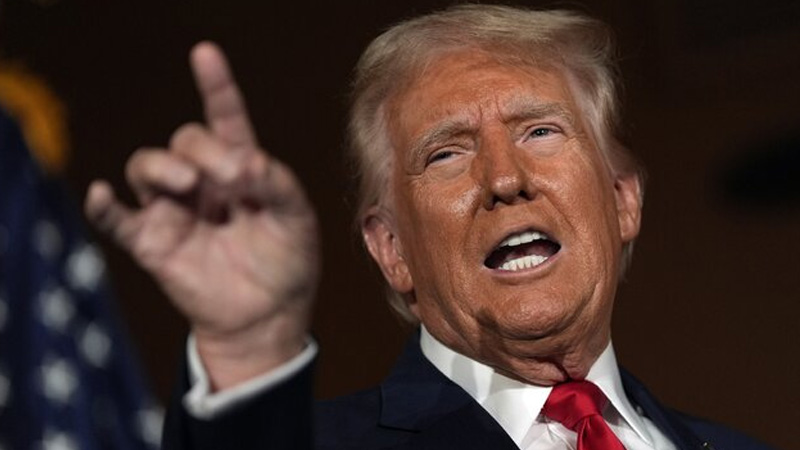“Trump Drowning in Unpaid Rally Bills — Cities Across the U.S. Demand Millions!”

Photo Credit : Dinner ,Saul Loeb
Running for president is an incredibly costly endeavor, with expenses ranging from television ads to campaign staff salaries and security for public rallies. Former President Donald Trump, in particular, has accumulated a significant amount of debt tied to his nationwide campaign events. While many of these unpaid bills date back to his 2024 presidential bid, a recent Newsweek investigation has revealed that Trump still owes over $700,000 to multiple U.S. cities from his 2016 and 2020 campaigns.
The outstanding debts have created financial burdens not only for city governments but also for the taxpayers who ultimately bear the costs of these unpaid expenses. Cities such as El Paso, Texas, have taken action in an attempt to recover funds. A spokesperson for the City of El Paso explained that on November 23, 2020, the City Council voted unanimously to hire a law firm to pursue collection of unpaid invoices from Trump’s campaign. “The City continues to seek the payment of these past-due expenses so that City taxpayers do not continue to bear the cost,” the spokesperson said. El Paso is at the forefront of this battle, but many other cities are still awaiting payments for rally-related costs incurred during Trump’s past campaigns. report from The List.
In 2019, The Center for Public Integrity compiled a list of cities owed money by Trump’s campaign, including a staggering $470,000 owed to El Paso. Among the oldest debts is a $65,124 bill from Spokane, Washington, related to a rally in May 2016. Former Spokane City Council President Ben Stuckart expressed his frustration, stating, “I would expect anyone who is billed for police services to pay their fair share.”
Minneapolis, Minnesota, is another city that struggled to collect a $530,000 bill for rally-related services from a 2019 Trump event. When the city requested payment, Trump’s campaign threatened legal action, claiming the amount was an attempt at extortion. Though the request for payment was eventually dropped, Minneapolis Mayor Jacob Frey was firm in his stance, tweeting, “Minneapolis taxpayers should not have to bear the brunt of operating costs resulting from the president’s visit.”
Not every city, however, seeks compensation for such events. Some cities have policies that prevent them from billing candidates for public safety services, while others simply refrain from doing so. For instance, the cost of a Trump rally held in Quincy, Illinois, in 2022 amounted to over $11,000, including overtime pay for city employees. However, Quincy has not publicly demanded reimbursement from Trump’s campaign, following its general practice of not billing candidates for such services.
Despite these policies in some locations, the list of unpaid bills continues to grow. Many municipalities are still waiting for payment from Trump’s campaign, raising questions about fairness and responsibility. As city governments attempt to recover the funds spent on rally security and other services, it is the taxpayers who continue to bear the financial burden of these unresolved debts. told by AP News.
Trump’s growing list of unpaid bills highlights the financial challenges he faces as he campaigns for another run at the White House. While some cities may not expect reimbursement, others are actively pursuing legal avenues to recoup their costs, putting more pressure on the former president as he navigates both political and financial challenges.
For many cities, unresolved debts are not just a matter of financial strain but a point of principle. City leaders argue that if public funds are used to support campaign events, the campaigns themselves should cover those costs. As Trump’s rallies continue to make headlines, so do the financial challenges left in their wake, with many cities still hoping to collect what they are owed.





